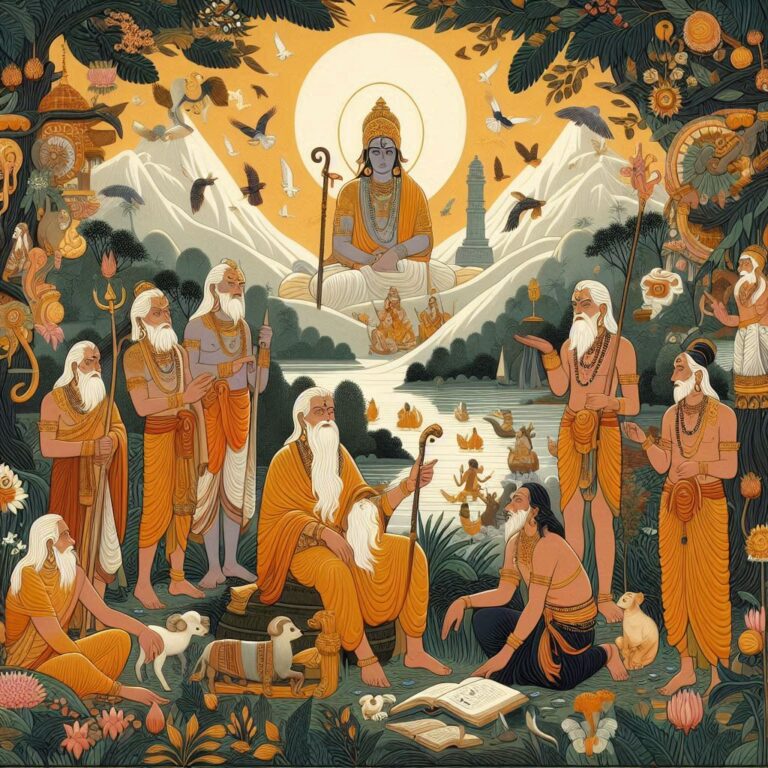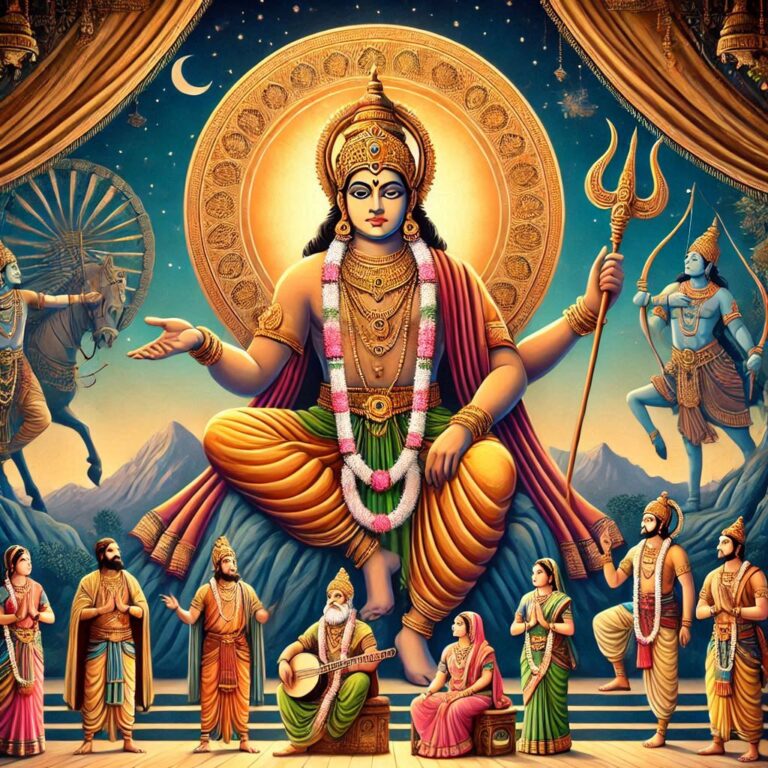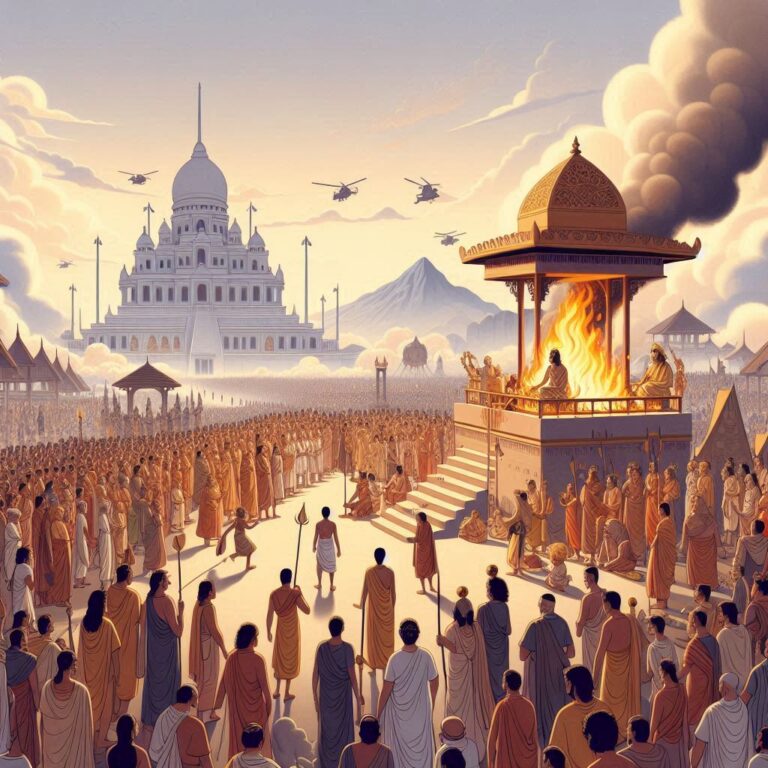In-Depth Exploration of Lord Rama’s Character Traits and Legacy
An In-Depth Look at Lord Rama’s Character Traits
When you think of the quintessential hero in Indian mythology, Lord Rama often comes to mind. With his incredible feats, unwavering moral compass, and deep-rooted sense of duty, he embodies the principles of dharma (righteousness) and idealism. Yet, beyond the surface of his legendary stories lies a complex character woven with intricacies that resonate with people even today. In this article, we will delve into the essence of Lord Rama’s personality, exploring his traits and the profound impact he has had in the realm of spirituality and ethics.
The Ideal Man: A Portrait of Dharma
Introduction to Lord Rama
Before diving into the character traits of Lord Rama, let’s set the stage. Rama, the prince of Ayodhya and the seventh avatar of Lord Vishnu, is best known for his role in the epic Ramayana. His life’s journey, filled with trials and tribulations, speaks volumes about his adherence to dharma. In simple terms, if you’ve ever wondered what it means to be truly good, look no further than Lord Rama.
Why does Lord Rama matter in today’s world? In an era where ethical dilemmas abound, Rama’s principles provide a guiding light. His story addresses age-old questions about duty, honor, and love, making him a timeless figure.
Key Traits of Lord Rama
1. Righteousness (Dharma)
At the heart of Lord Rama’s character is his unwavering commitment to dharma. Throughout his life, he prioritized righteousness over personal interest.
- Example: When he was exiled from his kingdom at the behest of his father’s promise to Kaikeyi, he didn’t argue. Instead, he embraced his destiny, stating, “For the sake of my father’s honor, I shall renounce my own desires.”
दशरथनान् न कर्तव्यं राम इष्टम च धर्मपथः।
Dasha-ratha-nān na kartavyaṃ rāma iṣṭama ca dharma-pathah.
“King Dasharatha’s words should not go unheeded; Rama must follow the path of righteousness.”
2. Compassionate Leadership
Rama was not just a leader; he was a compassionate one. He listened to his subjects’ grievances and put their interests above his.
- Analogy: Think of him as a modern-day CEO who believes in employee well-being. His affection for his people is an extension of his dharma.
Remember that time he helped the squirrel while building the bridge to Lanka? This small act of kindness speaks volumes about his empathy.
3. Integrity and Honor
Integrity was the bedrock of Rama’s traits. His word was his bond, and he upheld truth to the highest degree.
- Rhetorical question: How many leaders do we know today who would sacrifice their happiness for their promise?
सत्यं वद धर्मं चर।
Satyaṃ vada dharmaṃ cara.
“Speak the truth and live righteously.”
4. Selflessness
Rama’s life teaches us profound lessons about selflessness. He placed the needs of others before his own, whether it was in his relationship with Sita or his dedication to his father.
- Example: During his exile, he comforted Sita, who was troubled by their separation, always reminding her of their greater goal.
5. Bravery and Valor
Rama is celebrated for his bravery in facing Ravana, the demon king, symbolizing the eternal battle between good and evil.
- Metaphor: Just like a lion standing tall against a pack of wolves, Rama never backed down from challenges, charging fearlessly into battles.
रामो विप्राणां सदा कल्याणसंचारिन्।
Rāmo viprāṇāṃ sadā kalyāṇasañcārin.
“Rama is always a bringer of well-being for the noble ones.”
Other Significant Traits
- Wisdom: Rama’s decisions were always guided by wisdom. His ability to think strategically, especially during conflicts, set him apart.
- Forgiveness: Lord Rama epitomized forgiveness, even towards those who wronged him. This quality is crucial in forging lasting relationships.
- Loyalty: His unwavering loyalty to Sita and his followers showcases his commitment.
Legacy of Lord Rama
The impact of Lord Rama’s character is not confined to the pages of the Ramayana. His ethos of virtue, duty, and love continues to permeate various aspects of Indian culture, regardless of the changing times.
The Ramayana: A Source of Inspiration
The story of the Ramayana is often viewed as much more than a mythological text. It serves as a guidebook for living a life of purpose and principle.
Influence on Arts and Literature
- Dramas and Plays: His character has inspired countless plays and performances, showcasing his trials and triumphs.
- Festivals: Celebrations like Diwali mark the return of Rama to Ayodhya, symbolizing the victory of good over evil.
Philosophical Teachings
Rama’s life is frequently cited in discussions about ethics, spirituality, and decision-making.
रामो धर्मपत्न्याः कथा।
Rāmo dharmapatnyāḥ kathā.
“The tale of Rama speaks of righteousness and duty.”
Concluding Thoughts
Lord Rama is more than just a character from ancient scriptures; he is a symbol of the highest virtues. His values resonate with us today, reminding us that we all have the power to choose righteousness over temptation, honor over deceit, and love over hate. Life, after all, is a series of choices, and Rama teaches us to choose wisely.
What will you choose today? Will you embrace the values of Lord Rama in your own life?
FAQs
1. Why is Lord Rama considered a paragon of virtue?
Lord Rama’s unwavering commitment to dharma, compassion towards others, and acts of valor and integrity serve as ideals for moral behavior.
2. How does the Ramayana influence Indian culture?
The Ramayana significantly shapes festivals, art, and moral teachings in Indian culture, promoting the values that Lord Rama embodied.
3. What can modern leaders learn from Lord Rama?
Modern leaders can learn about selflessness, integrity, and the importance of valuing their responsibilities, just as Rama did.
4. Is Lord Rama relevant to today’s ethical dilemmas?
Absolutely! The principles of righteousness and compassion that Rama practiced continue to be relevant in addressing modern ethical challenges.
5. How can I incorporate Lord Rama’s teachings into my daily life?
You can incorporate his teachings by practicing truthfulness, empathy, and selflessness in your interactions with others.
In the spirit of Lord Rama, let’s strive to embody his qualities and make our world a better place!








